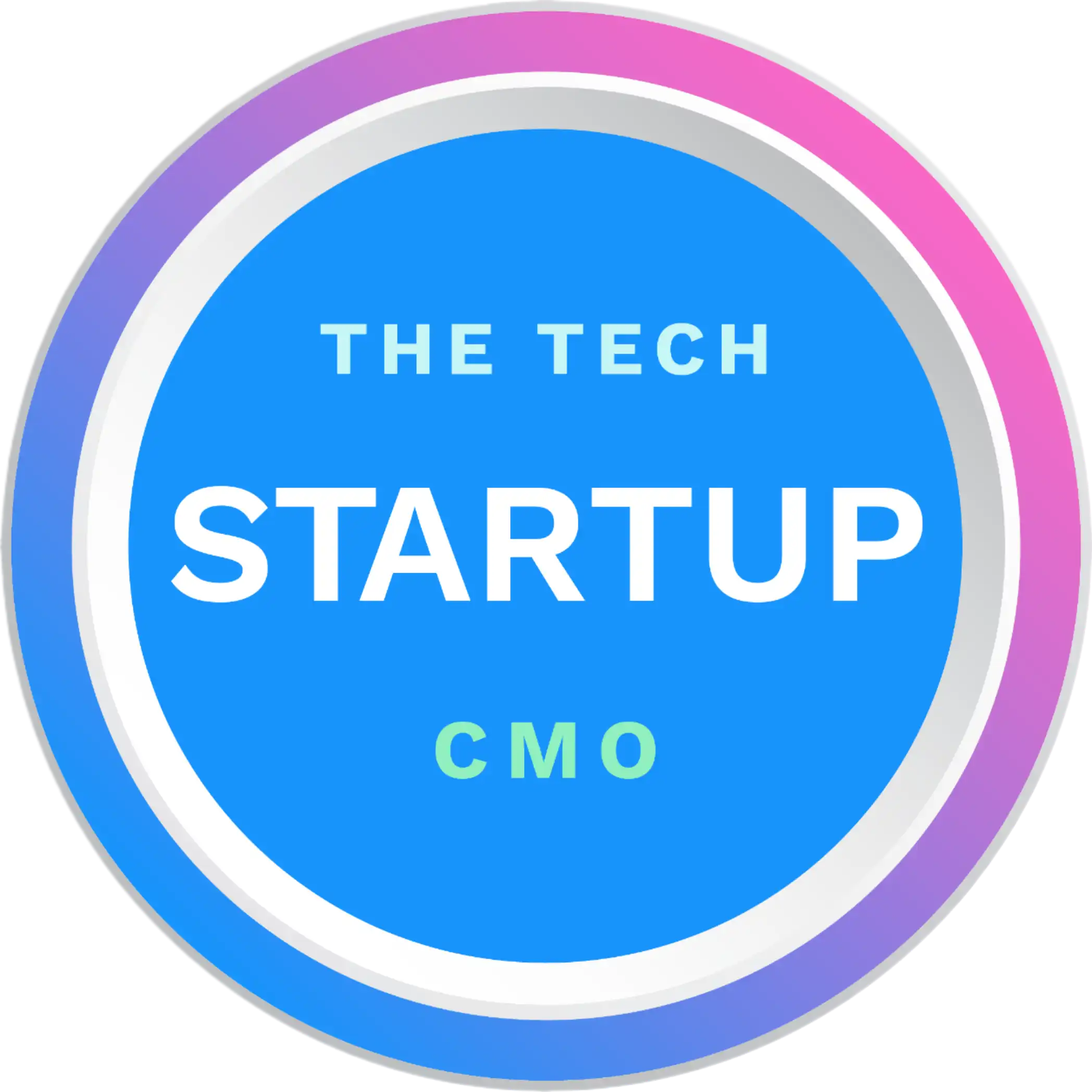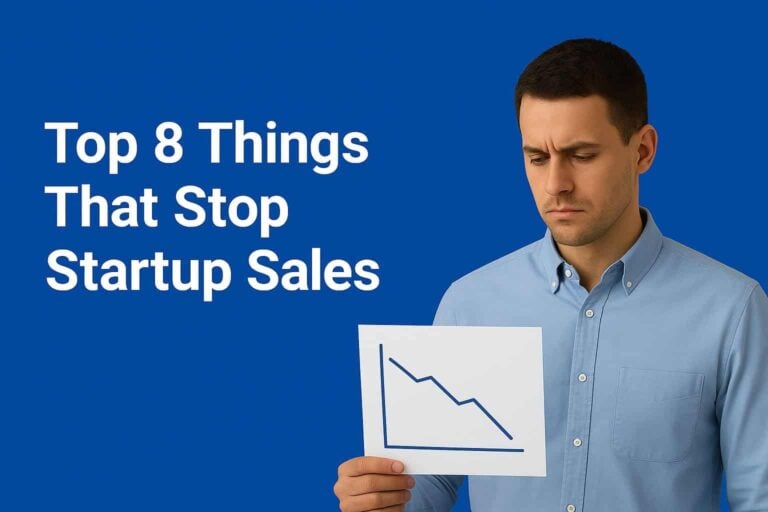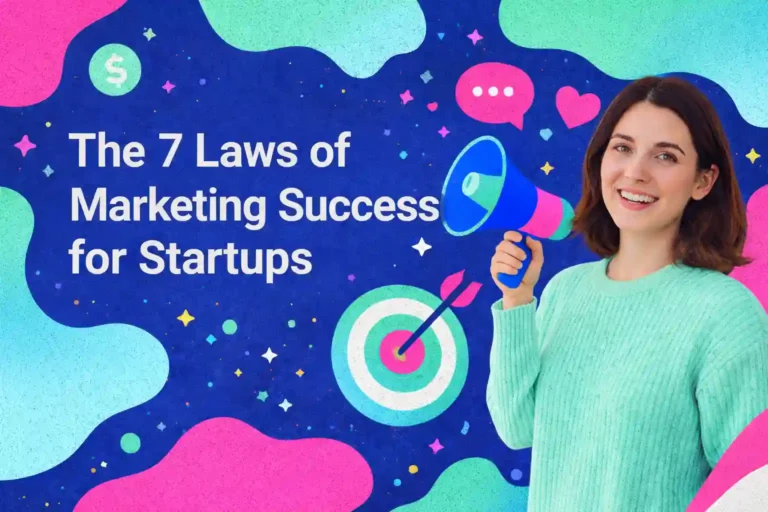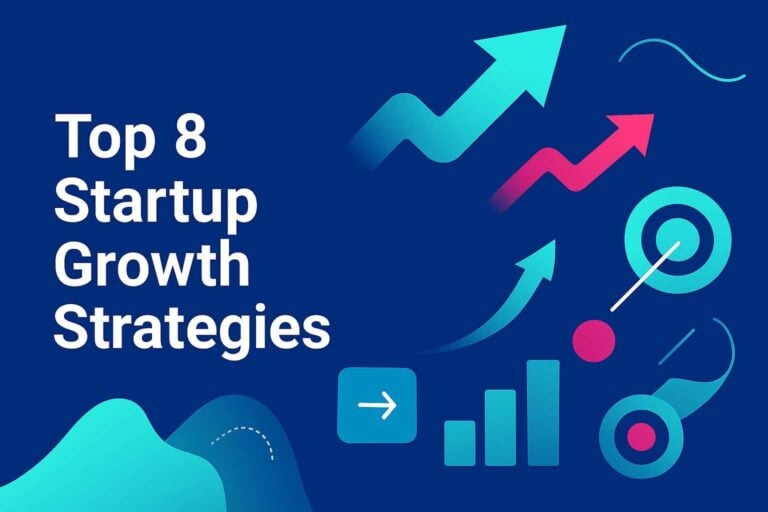The Future of B2B Sales…
Your sales prospects are now nearly 70% through their purchase journey before they ever speak with a salesperson. Buying committees have expanded from three to seven decision-makers on average. Sales cycles stretch longer quarter after quarter and the quality of inbound leads? Let’s just say your sales team has some choice words about what marketing is sending their way. In B2B tech startups, every lead counts. For founders and marketers trying to scale efficiently, this presents a huge challenge: how can you grow pipeline and revenue when buyer engagement happens later and competition for attention is fiercer than ever? The answer may lie in sales automation and artificial intelligence (AI), the two forces reshaping how startups attract, qualify and convert leads.
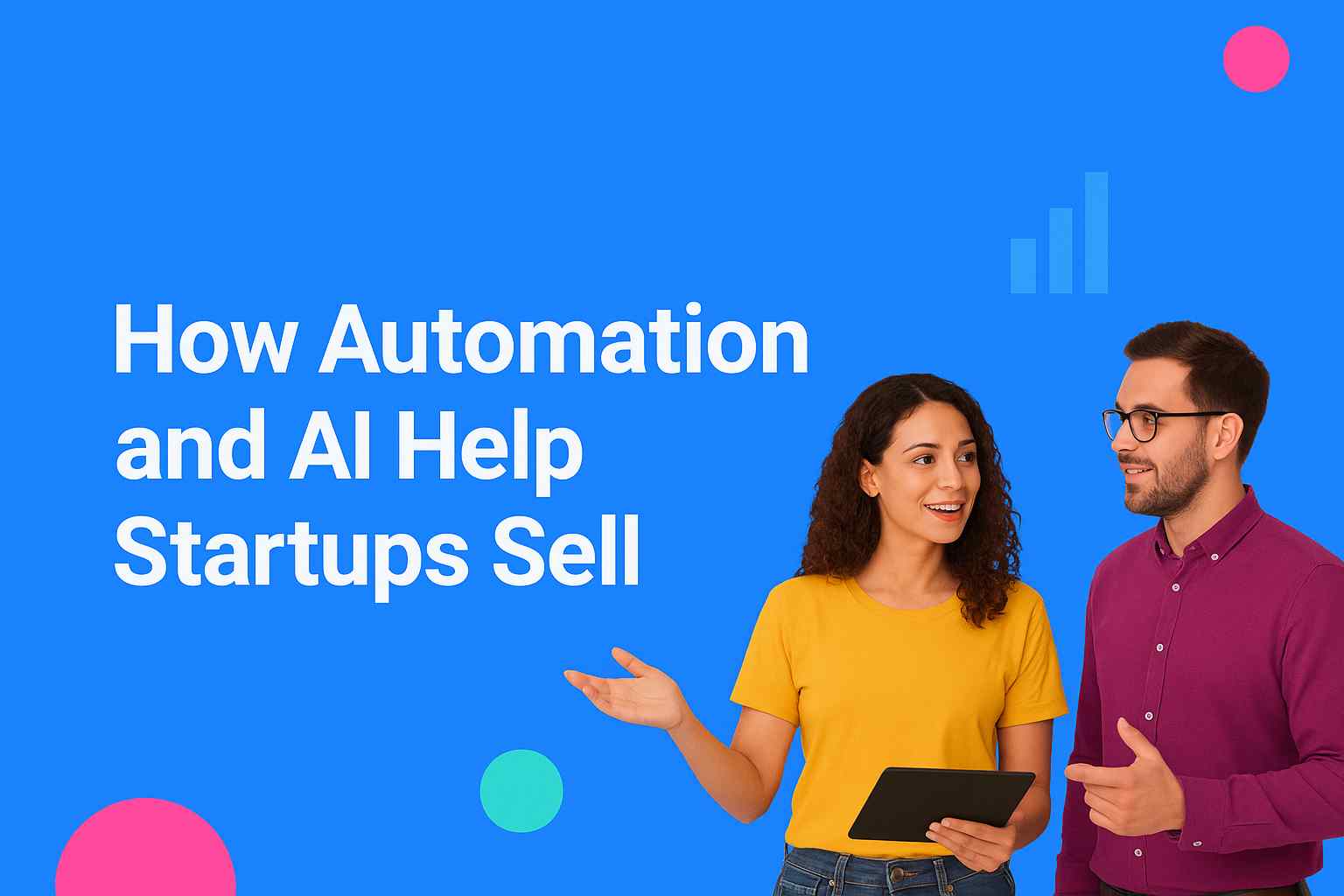
B2B Sales Are More Challenging Than Ever
In the past, B2B sales teams could rely on the relationship between activity and volume: more cold calls, more demos, more follow-ups. However, today’s buyers are harder to reach and have higher standards of engagement. They expect personalisation, fast responses and seamless digital experiences. They research independently, compare vendors online and consult peers before ever speaking to sales.
Recent data shows that 63% of B2B companies already use automation in some part of their sales process, yet that still leaves over a third lagging behind. Those companies risk losing to faster, more data-driven competitors. AI in sales can increase lead conversion rates by up to 50%, while teams using AI close 43% more deals. The message is clear: automation and AI may be regarded as efficiency tools but used in the right way they’re also revenue drivers.
Why Sales Automation and AI Matter for Startups
Startups operate in a unique environment of tight budgets, lean teams and scaling fast can make or break survival. Sales automation helps level the playing field by allowing small teams to achieve enterprise-level performance.
Here’s how:
- Automation reduces lead response times by 70%. That’s crucial when leads expect near-instant follow-up after a demo request or whitepaper download.
- 79% of high-performing B2B teams use automation tools. This means automation is not a luxury, as it’s now a best practice among leaders.
- AI helps salespeople identify priority accounts with 60% more accuracy, ensuring effort is focused where it counts most.
For startups, the message is clear: automation and AI let you scale smartly, not just quickly.
The Modern Sales Challenge of Complexity and Chaos
Before diving deeper into solutions, it’s worth acknowledging the challenges AI and automation are trying to solve. B2B sales cycles are elongating and buying patterns are unpredictable. A single deal can now involve 10 or more stakeholders, many of whom prefer to remain anonymous until late in the process. Only 38% of B2B firms currently use AI-powered CRMs, meaning most are still trying to work these complex sales processes manually, and often with outdated tools and incomplete data.
Meanwhile, poor data quality remains a silent killer. Dirty or duplicate CRM records can derail campaigns, misalign marketing and sales and erode trust in your reporting. Automation can reduce administrative tasks by 20%, freeing up sales agents to focus on actual selling. However, even that automation is only as good as the data it relies on.
Where Automation Delivers Immediate Impact:
Here are the key areas where automation and AI can immediately improve startup sales efficiency.
1. Lead Generation and Scoring
AI-driven predictive analytics tools can analyse behavioural data, intent signals and past conversions to prioritise high-potential leads. This shortens sales cycles by 23% and helps reps focus on prospects most likely to buy. For startups, even basic automation can prevent leads from slipping through the cracks.
2. Lead Nurturing and Personalisation
Automation tools allow you to send tailored email sequences or in-platform messages that adapt to prospect behaviour. AI-based chatbots, for example, improve engagement rates by 30% and are always available. A smart nurturing strategy combines automation with authentic messaging. The goal isn’t to replace the human touch but to amplify it at scale.
3. Sales Engagement and Follow-up
The faster you follow up, the more likely you are to win the deal. Automated alerts can notify teams when prospects engage with your website, content or emails, ensuring no opportunity goes cold. With automation reducing lead response time by 70%, startups can compete with larger, better-funded sales teams.
4. Data Enrichment and Quality Management
Bad data costs startups both time and credibility. Automating data hygiene — deduplicating contacts, updating company info, tagging industry sectors — ensures CRM accuracy. This also supports better segmentation, more targeted outreach and stronger reporting.
5. Forecasting and Pipeline Visibility
AI-powered forecasting tools can now improve accuracy by 42%. For founders and CMOs, that means more reliable projections, fewer surprises and clearer insights into which campaigns truly drive ROI.
6. Sales Coaching and Performance Optimisation
Modern AI tools like Gong and Chorus analyse call recordings to identify what top performers do differently. They use natural language processing to highlight keywords, tone and sentiment, which provides real-time coaching. Over time, this helps build a culture of continuous improvement.
Empowering Sales Teams, Not Replacing Them
A common misconception is that automation will replace salespeople. The most effective teams use automation to augment human capabilities, not eliminate them.
For instance:
- 52% of sales professionals say AI helps with time management
- Automation increases average deal size by 10–15%
- 33% of companies using AI report higher customer satisfaction scores
It’s people that close sales deals, not automation, but it can give those people the insights, speed and precision needed to perform at their best. When startups combine human creativity and emotional intelligence with machine-driven analytics, they create an unbeatable combination of empathy at scale.
Top 6 Practical Steps for Startups to Get Started:
If your sales process still relies heavily on manual tracking and follow-up spreadsheets, don’t worry, because you’re not alone. Here’s a step-by-step plan to modernise without overwhelming your team.
1. Audit Your Current Process
Map every touchpoint in your sales cycle and understand:
- Where are delays happening?
- Which stages are manual and repetitive?
Answering these questions will help identify the low-hanging fruit where automation can save time immediately.
2. Invest in a Modern CRM
A cloud-based, AI-ready CRM (like HubSpot, Pipedrive or Salesforce Essentials) is the foundation of automation. Remember that only 38% of B2B firms use AI-powered CRMs, so adopting one can give you a competitive edge.
3. Automate Data Capture and Lead Routing
Connect your web forms, chatbots and ad platforms directly to your CRM. Tools like Zapier or HubSpot workflows can ensure leads go to the right rep instantly.
4. Use AI for Lead Scoring and Forecasting
Start with predictive scoring — use AI to rank leads by likelihood to convert. This gives your sales team a daily “priority list” instead of a sea of cold contacts.
5. Enable Real-Time Insights
Integrate analytics dashboards that display funnel performance, engagement rates, and conversion metrics. With forecasting accuracy improving 42% through AI, you’ll gain visibility into what’s truly driving growth.
6. Don’t Forget the Human Element
Technology enables efficiency, but relationships build trust. Use automation to inform your outreach and not replace it. The best salespeople will always be those who combine data-driven insights with authentic connections.
Getting Ahead
AI and automation are here and now, not some fantastical future scenario. The data is compelling, and startups that embrace these tools are growing faster, selling smarter and delighting customers more consistently. The challenge for founders and tech marketers isn’t whether to adopt automation, it’s how fast they can integrate it into their go-to-market strategy. Now that buying teams don’t want to engage with sales until the latter stages, automation can help ensure that you’re ready when they finally do. It keeps your brand present, your follow-ups timely and your insights actionable. For B2B tech startups, that’s not just an advantage; it could be necessary for survival.
*Sources:
- B2B buyers now complete nearly 70% of their buying journey before engaging with a sales team (Source: Gartner).
- 63% of B2B companies use automation in some part of their sales process (Source: Salesforce).
- AI in sales can increase lead conversion rates by up to 50% (Source: McKinsey).
- Automation reduces lead response time by 70% on average (Source: Drift).
- Sales teams using AI close 43% more deals (Source: Harvard Business Review).
- 79% of high-performing B2B teams use sales automation tools (Source: Salesforce).
- 47% of sales leaders say automation helps improve customer experience (Source: HubSpot).
- Predictive analytics shortens sales cycles by 23% (Source: InsideSales).
- AI-based chatbots improve engagement rates by 30% (Source: Drift).
- Automation increases average deal size by 10–15% (Source: Forrester).
- 52% of sales professionals say AI helps with time management (Source: Salesforce).
- AI helps reps identify priority accounts with 60% more accuracy (Source: Gong).
- Sales forecasting accuracy improves by 42% with AI tools (Source: InsightSquared).
- Only 38% of B2B firms use AI-powered CRMs (Source: Gartner).
- Automation reduces administrative tasks by 20% (Source: HubSpot).
- Companies using AI in sales report 33% higher customer satisfaction scores (Source: McKinsey).
You may want to read: “How to Define Your Target Market.”

